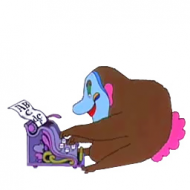This has been a work in progress for me. I think the first time I was actually confronted with the stark reality that other people held fundamentally different views than me was in the first grade, but this didn't actually inform me that other people held all kinds of different views. I still have issues seeing other people's point of view, or particular kinds of point of view, as reasonable or well-thought out, but my awareness of where reasonable people can differ has expanded a lot.
I remember at various times being surprised or shocked at people expressing thoughts and opinions unlike mine, or people who expressed dislike of something I was doing (and didn't realize it was a dislikeable thing). What was also interesting to me was I could do something that annoyed person A, be told it was annoying, but still do it and annoy person B in a different context (I remember this happening three or four times with a kind of casual teasing that I thought was friendly - and yet I still do it with one person right now, so it seems like every individual person has to tell me they are not okay with it for it to sink in).
I also have issues with needing people to agree with me (because they're obviously wrong!) rather than simply make our points and stop. I know that "agree to disagree" just kind of doesn't work well for me. There are ways for me to disengage that don't feel quite so wrong to me, though.
I guess what bothers me is how some equate this kind of thing to things like "a lack of awareness of other minds" or even suggesting that autistic people aren't aware of other people.
And it's not even that I am incapable of looking at other perspectives, but it is more of an intellectual effort, and not something that comes automatically. I can do this when, say, writing and creating characters and constructing logically consistent worldviews and opinions for them (even if I hate those opinions and think they are ridiculous), but it makes it difficult to handle it in real time. It becomes a processing bottleneck.












